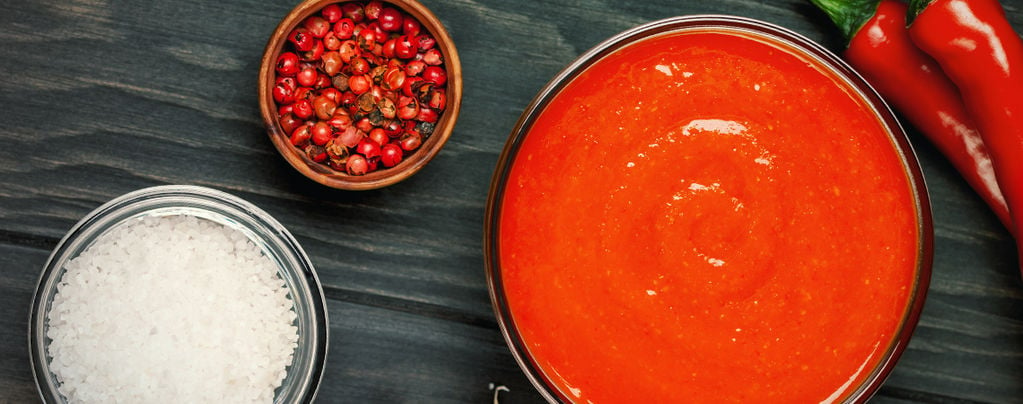
How To Make Hot Chilli Sauce
Love the kick of hot sauce? Whether you carefully drip it on your food or splash it on with abandon, this article is for you. Keep reading to learn how to make your own delicious hot sauce in just 6 simple steps.
Whether you smear it on your eggs or stir it into your favourite stews, hot sauce is a super versatile condiment, and arguably one of the easiest (and most delicious!) ways to give your favourite meal that extra kick. Below, we'll share our super simple recipe for making your own hot sauce from scratch using just a handful of simple ingredients. Plus, after walking you through the basic recipe, we'll also share a few simple tips to help you make unique, flavourful chilli sauces that'll give any store-bought sauce a good run for its money!
What is hot chilli sauce?
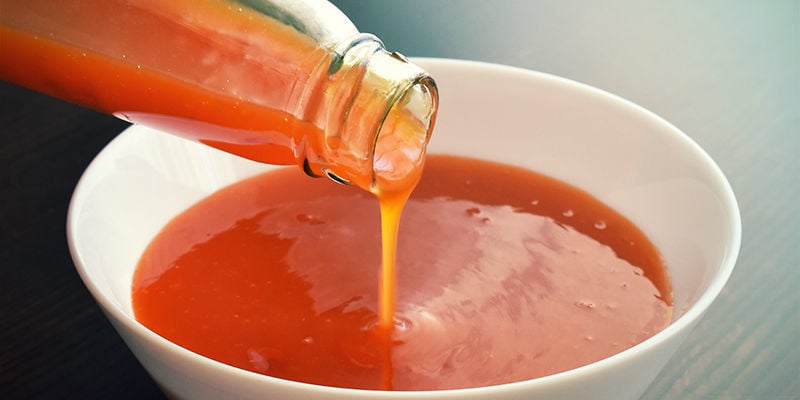
Hot chilli sauce is a condiment loved across the world. Whether you splash it on your breakfast, mix it into a salad dressing at lunch, or use it to add some kick to a hearty soup at dinner, hot sauce deserves a place on your table and in your kitchen. While there are countless different hot sauces out there, they all share one main base ingredient: hot peppers. The heat of a sauce comes down to both the type and quantity of peppers used in its preparation.
Hot sauce vs sriracha: What's the difference?
Sriracha is a type of hot sauce made from a thick, spicy, and fragrant paste that combines hot chillies (typically jalapeños), garlic cloves, distilled vinegar, salt, and sugar. It's very popular in Thailand and other parts of Southeast Asia, where it's usually served alongside a variety of dishes. In Thailand, for example, sriracha is often served with seafood and eggs as a dipping sauce. Meanwhile, in Vietnamese cuisine, sriracha is often used as a condiment to season pho, noodles, and rice dishes.
Sriracha differs from other hot sauces in two major ways. Unlike other hot sauces, which often use a combination of spicy and sweet peppers, aromatic veggies and herbs, and a long list of condiments, sriracha is made using just the ingredients mentioned above. Moreover, unlike other hot sauces that are either cooked or fermented, sriracha uses fresh ingredients that are ground, mixed together, seasoned, and bottled straight away. The use of preservatives is what stops the sauce from expiring.
What peppers are best for making homemade hot sauce?
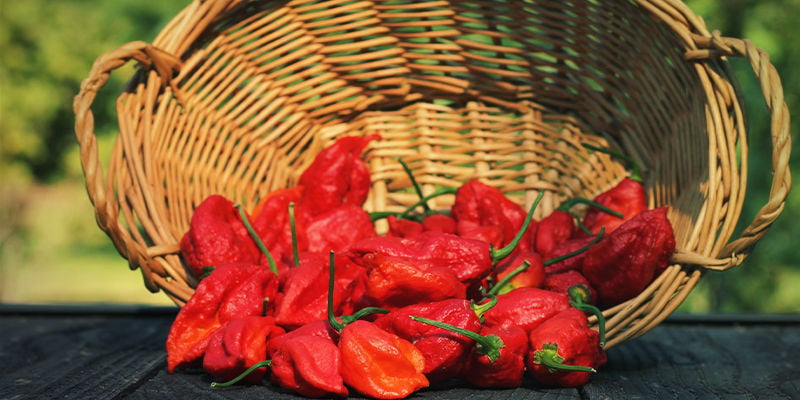
It's easy to get lost in the world of peppers. Just browse the Zamnesia Peppershop and you'll find countless different chilli varieties with unique colours, flavours, and levels of spice. Among all the peppers out there, some favourites to use as the base of homemade hot sauce include:
- Jalapeños
- Habaneros
- Ghost peppers
- Carolina Reaper peppers
- Cayenne peppers
- Thai chillies
- Rocoto peppers
- Scotch bonnet peppers
Growshop
From flowers and herbs to vegetables and fruits, get your hands on some of the finest seeds and products courtesy of our Plantshop.
How to make fermented hot sauce in 6 simple steps
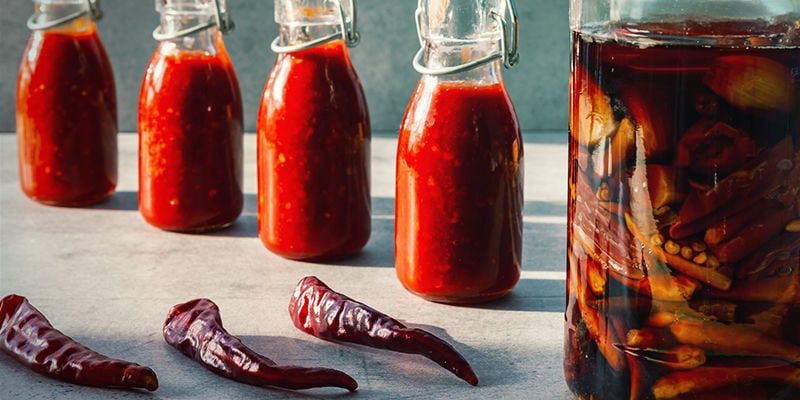
Most of the hot sauces you'll find on the shelves of your local supermarket are made using fermentation. The process of fermenting hot chillies together with garlic and salt not only allows the sauce to take on a deeper, more complex flavour, but it also helps the sauce keep for longer.
If you're intimidated by the idea of fermenting your own hot sauce, don't be. Fermenting chilli sauce is super simple and can be done with just a few ingredients and simple utensils. Follow the recipe below to make your own fermented hot sauce at home.
Ingredients
- 250g of your favourite hot chillies
- 5–7 cloves of garlic (or more if you like)
- 1 large onion
- ½ cup of vinegar (apple cider vinegar, white wine vinegar, or regular vinegar all work great)
- Sea salt
- Sugar
- Water
Equipment
- Food processor
- Clean glass jar
- Cheesecloth
- Rubber band
Directions
-
Coarsely chop your chillies, garlic, and onion in a food processor. Slowly add salt to taste and water until the mixture takes on a thick salsa or relish-like texture.
-
Transfer the mixture to a clean glass jar and cover the top with cheesecloth. Use a rubber band to hold the cloth in place. Let rest for 24–48 hours at room temperature on the kitchen counter.
-
After 24 hours, stir in the vinegar.
-
Cover the jar with cheesecloth again and let it ferment for 1 week at room temperature.
-
After 1 week, use a blender to puree the mixture to make a smooth sauce. Add more water or vinegar if you want to thin out the sauce a little, or strain it to remove the pulp. Add salt and sugar to taste.
-
Pour the hot sauce into a plastic bottle and refrigerate. It will keep for several months. Note that the sauce may separate over time, so remember to shake before use.
Note: It is important to wear gloves when handling hot peppers. Exercise due diligence and avoid touching sensitive areas of the body.
How to make hot chilli sauce: The "quick cook" method
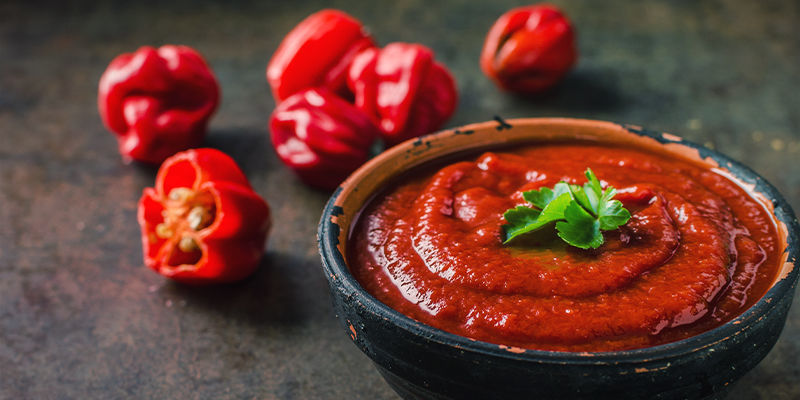
Fermenting hot sauce helps to achieve an intense flavour many spice heads love. But many novice cooks are put off by fermenting (especially if they've never fermented anything before), and others simply don't have the patience to wait a week for the hot sauce-making process to conclude. If that sounds like you, then consider making non-fermented hot sauce using the "quick-cook" method. Plus, the recipe also shares a little secret for how to give your homemade chilli sauce an extra kick of a different cast!
Does hot sauce need to be refrigerated?
When prepared properly, hot chilli sauce can last for at least 2–3 months. During this time, we recommend refrigerating your hot sauce, especially if you're regularly opening its container and using it. The cold temperatures in your fridge will help regulate the rate at which your hot sauce continues to ferment and ensure no bad bacteria grow in it.
Hints and tips for making the best homemade hot sauce
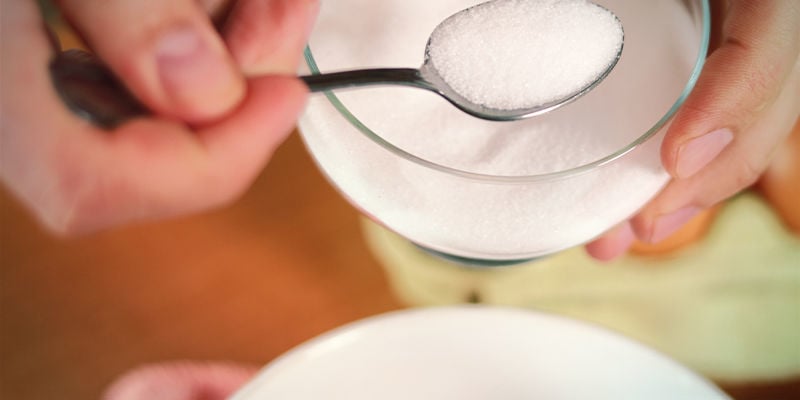
To help you take your homemade hot sauce to the next level, here are a few extra tips and tricks we've learned from our experiences making hot sauce at home:
-
Adjust the amount of salt, sugar, and vinegar in your sauce to taste. If you're worried about using plain white sugar to sweeten your hot sauce, other natural alternatives include honey, muscovado (unrefined sugar), stevia, and dates (which will also contribute to the flavour of your hot sauce, adding deep, almost chocolatey notes to it).
-
Don't go light on the salt/sugar. In an attempt to keep their home-cooked meals as healthy as possible, a lot of people cut down on their use of salt and sugar in the kitchen. And while we definitely support healthy cooking, we advise you don't apply the same principles to making hot sauce. Both salt and sugar help to bring out more flavour from your hot sauce and, more importantly, act as natural preservatives that'll help extend the shelf life of your creations. Use sweet bell peppers, fruits, or the sweeteners mentioned above to perfectly balance your hot sauce.
-
Add oils, such as sesame or olive, to your hot sauce to further preserve it and add extra flavour and texture.
-
Don't be afraid of a little chunk! Try to avoid over-processing your hot sauce to preserve some of the chunky texture of the chopped ingredients.
-
Remember to pick your peppers carefully. The hotter the pepper, the hotter your sauce. Note: removing the white tissue and deseeding your chillies will help to tame some of the spice.
-
While we love using fresh peppers in hot sauce, there is absolutely nothing wrong with using dried or smoked peppers. In fact, they contribute their own unique flavour to hot sauces, and can be stored for months.
-
Experiment! One of the most fun aspects of cooking is finding your own way to improve dishes and recipes. The recipe outlined above is designed as a starting point to teach you how to make a basic hot sauce. Make sure to spice it up with different aromatic veggies, spices, herbs, fruit, and more.
There you have it! Now that you know how to make your very own hot chilli sauce from scratch, head on over to the Zamnesia Peppershop to order your favourite hot chillies and start turning up the heat in your kitchen.
-
 4 min
16 May 2022
How To Store Chillies And Peppers (Short And Long Term)
There's no doubt about it; cultivating pepper and chilli plants is a hugely rewarding experience. But it's the harvest we really do it for. Having a supply of great-tasting and spicy chillies at...
4 min
16 May 2022
How To Store Chillies And Peppers (Short And Long Term)
There's no doubt about it; cultivating pepper and chilli plants is a hugely rewarding experience. But it's the harvest we really do it for. Having a supply of great-tasting and spicy chillies at...
-
 5 min
13 May 2022
How To Dry Chillies And Sweet Peppers
Whether you use them whole, as a ground spice, or to make your own spicy chilli flakes, dried sweet peppers and chillies make an excellent addition to any spice cabinet or pantry. Best of all,...
5 min
13 May 2022
How To Dry Chillies And Sweet Peppers
Whether you use them whole, as a ground spice, or to make your own spicy chilli flakes, dried sweet peppers and chillies make an excellent addition to any spice cabinet or pantry. Best of all,...
-
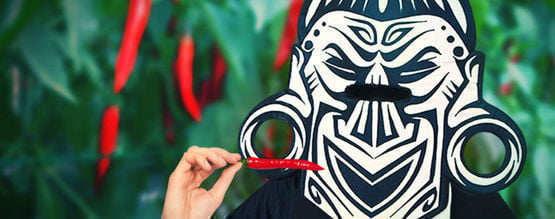 4 min
5 August 2021
Hot Peppers And The Scoville Scale
There's no denying the appeal of spicy food. Whether you're keen on Mexican delicacies, Pad Thai, or Vindaloo curries, they have one thing in common; peppers.
4 min
5 August 2021
Hot Peppers And The Scoville Scale
There's no denying the appeal of spicy food. Whether you're keen on Mexican delicacies, Pad Thai, or Vindaloo curries, they have one thing in common; peppers.













 United States
United States











